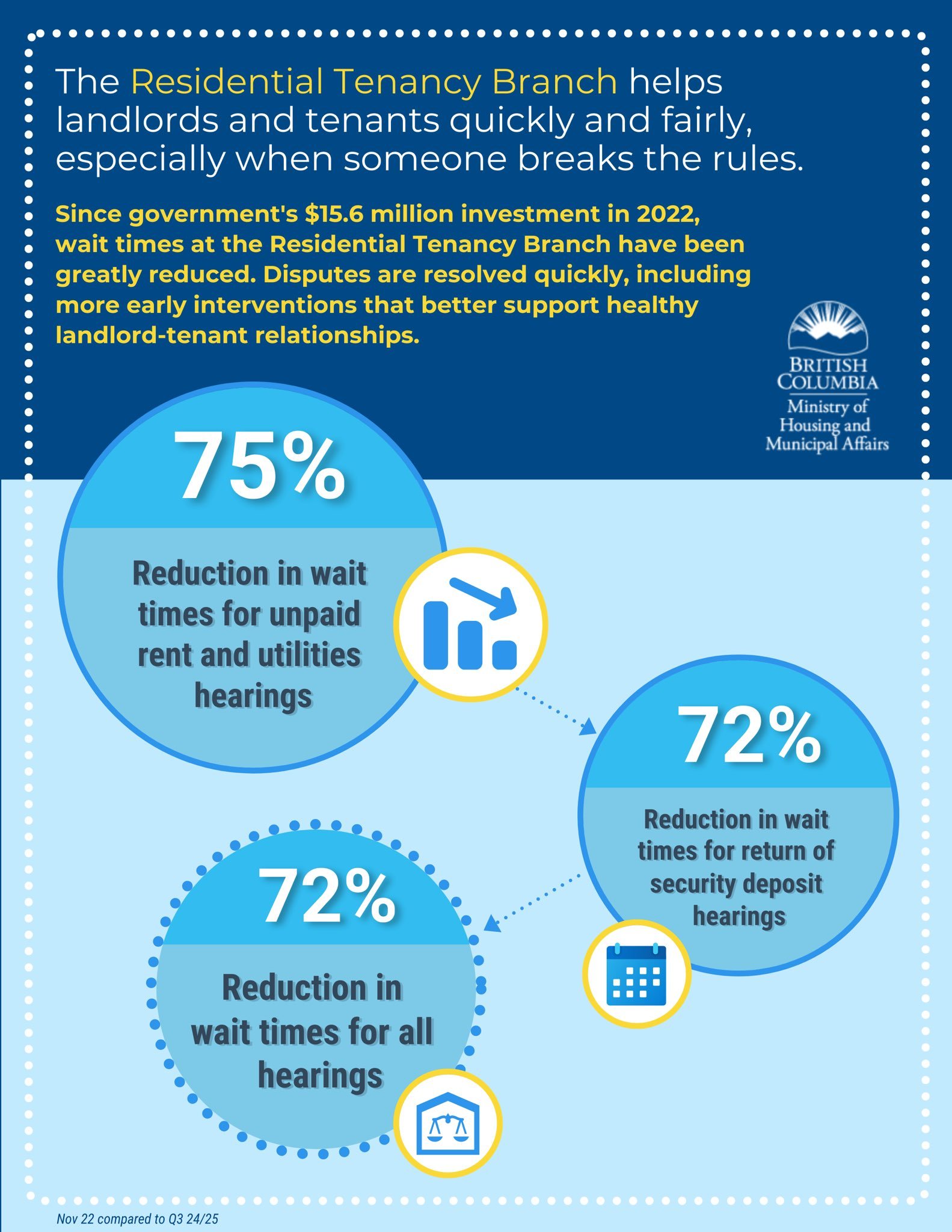
Victoria, B.C. – Landlords and renters across British Columbia will soon benefit from an array of new measures designed to boost support services and streamline dispute resolutions. The recent policy enhancements come as part of ongoing efforts to ensure that the Residential Tenancy Branch remains a responsive and effective resource for the province’s rental community.
“Through our government’s investments in the Residential Tenancy Branch, we’ve reduced wait times for renters and landlords by an average of 70% since November 2022,” stated Ravi Kahlon, Minister of Housing and Municipal Affairs. “Today, we’re introducing more measures to ensure landlords and renters receive additional supports, can continue to build strong partnerships, and have confidence they’ll be able to get advice and resolve disputes in a timely manner, should issues ever arise.”
The newly announced measures include several key changes aimed at fostering greater transparency and consistency in the handling of rental matters:
- Aligned Notice Periods: The regulation now aligns the notice periods to end a tenancy with recent changes that require homebuyers to provide renters with three months’ notice of eviction.
- Enhanced Transparency: Outcomes of monetary orders will be published, providing both landlords and renters with clear insights into dispute decisions.
- Updated Handling of Abandoned Property: Regulations governing landlords’ responsibilities for handling tenants’ abandoned property have been revised.
- Improved Guidance: Comprehensive guides and tool kits are being rolled out to help both parties more effectively navigate hearings and understand their rights and responsibilities.
The Province’s commitment to reducing the risk for both renters and landlords is further underscored by significant improvements to the Residential Tenancy Branch’s hearing wait times. Where disputes over unpaid rent and utilities previously took nearly three months to resolve, the new measures have cut wait times to roughly one month. This achievement positions British Columbia as a national leader for low wait times in dispute-resolution hearings.
Since 2017, the Province has maintained a balanced approach by enhancing renters’ protections while also ensuring landlords retain the necessary recourse in situations involving problematic tenancies. Past changes have included efforts to deter bad-faith evictions, prevent illegal renovictions, and cap annual rent increases in line with inflation. These initiatives are credited with keeping more rental units available in the market and helping to secure housing for a broader segment of the community.
Funded by a $15.6-million investment, the recent investments into the Residential Tenancy Branch signify the Province’s dedication to providing both landlords and renters with efficient, fair, and transparent services.
